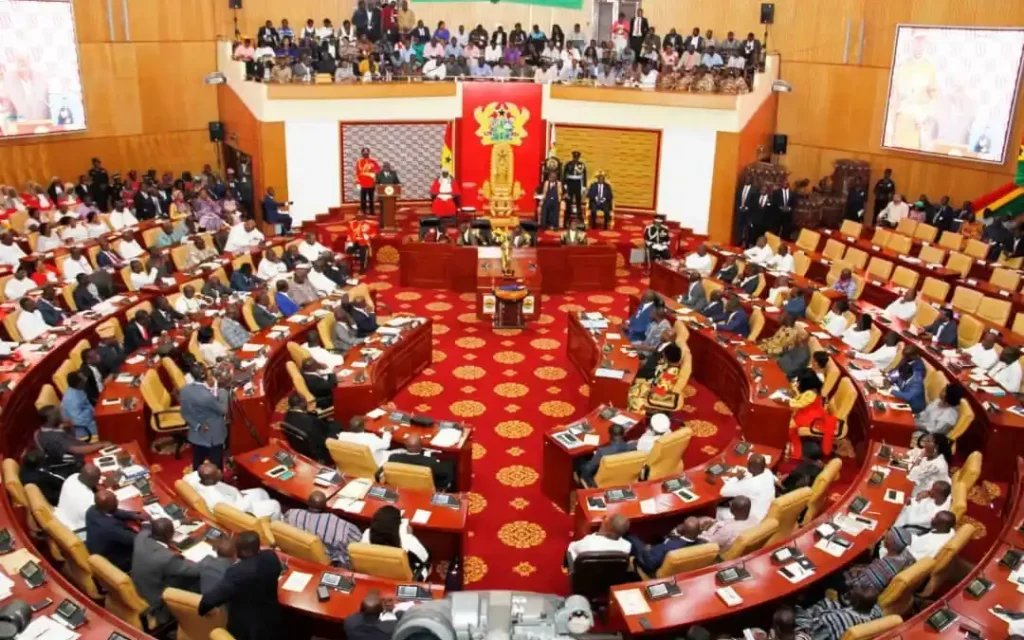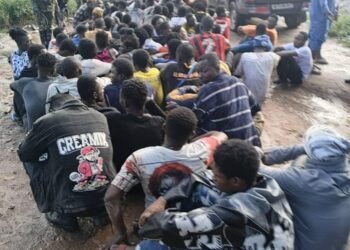The Independent Presidential Candidate Kofi Koranteng has addressed the Supreme Court’s interpretation regarding the concept of a clear majority in parliament.
“We go to the Supreme Court for interpretation, and they have interpreted. How it got there, that’s their business.”
Kofi Koranteng Independent Presidential Candidate
Koranteng underscored the significance of respecting the court’s decisions, suggesting that debating its outcome would only hinder progress.
“If it’s gone to Supreme Court and they have an interpretation, and it’s conclusive, then we have to move forward.”
Kofi Koranteng Independent Presidential Candidate
This perspective hints at Koranteng’s belief in the finality of Supreme Court rulings as a guide for parliamentary procedure.
Corruption vs. Legislative Passion
“They never seem to have this manner of passion when it comes to corruption… let’s find out the people who are mutilating our lands and poisoning our waters.”
Kofi Koranteng Independent Presidential Candidate
Koranteng contrasted this lack of enthusiasm with the energy that legislators show in partisan conflicts and procedural debates, calling it a “merry-go-round.”
According to him, the energy put into political bickering should instead be directed at addressing issues that directly affect the lives of Ghanaians.
A Critical View of the 8th Parliament
Koranteng did not mince words when describing the current 8th parliament. He charged; that [the 8th Parliament] is ‘’the most useless parliament,” explaining his belief that the institution has failed to deliver meaningful benefits to the people.
“They haven’t positioned themselves for the benefit of Ghanaians,” he said, challenging anyone to provide a single example where the current parliament has truly impacted citizens positively.
In discussing the public’s perception of parliament, Koranteng noted the tendency to praise parliamentarians based on their qualifications rather than their effectiveness.
His critique centered on the idea that while Ghana’s lawmakers may possess qualifications and past achievements, these have not translated into real improvements in Ghanaians’ lives.
Lack of Mental Capacity
“They don’t have the mental capacity,” he declared, challenging parliamentarians to “prove that” they can improve Ghana’s situation.
He argued that simply increasing the number of parliamentarians will not address the root issues.
“In this world of humanoid robotics, quantum computing and cellular intelligence and augmented realities and all these technologies, you don’t need more to get more.”
Kofi Koranteng Independent Presidential Candidate
Koranteng’s position reflects a broader critique of inefficiency within the parliamentary system, suggesting that innovation and critical thinking are lacking.
Resource Management and Economic Strategy
Koranteng voiced his disappointment in Ghana’s resource management strategy, particularly regarding oil and gas.
He highlighted the paradox of Ghana being an oil-producing nation yet remaining heavily reliant on oil imports.
“Out of the top five, three are petroleum products, you sit on oil, [yet] out of your top five, three are petroleum products and it’s killing your economy because that’s how prices are indexed.”
Kofi Koranteng Independent Presidential Candidate
Koranteng cited this as an example of the government’s failure to leverage domestic resources, particularly pointing to the decision to decommission the Tema Oil Refinery.
According to him, the country’s reliance on foreign oil refiners reflects poor strategic thinking and an inability to harness local assets for economic gain.
His point highlighted the missed opportunities for economic independence that he believes result from parliament’s mismanagement of resources.
He concluded that Ghana’s economic struggles, including high import rates and inflated costs, are compounded by this inability to maximize the country’s oil and gas assets.
Call for Action and Accountability

Koranteng closed his critique with a call for action, urging parliamentarians to adopt a results-driven approach that centers on the welfare of the people.
He challenged them to prove their commitment to Ghana’s progress or risk his continued critique. “Prove that, give me one instance of how you can prove that and I will quit running for president,’’ he said, reinforcing his demand for evidence of parliamentary effectiveness.
Kofi Koranteng’s remarks reflect deep dissatisfaction with Ghana’s current parliamentary structure and legislative priorities.
He questions both the competence of parliamentarians and their commitment to addressing core issues that impact citizens’ lives.
By drawing attention to Ghana’s economic mismanagement, especially in resource sectors, Koranteng advocates for a shift in focus toward policies that genuinely serve the public interest.
His critique challenges the status quo and called for a parliament prioritizing Ghana’s long-term well-being over procedural debates and partisan conflicts.





















